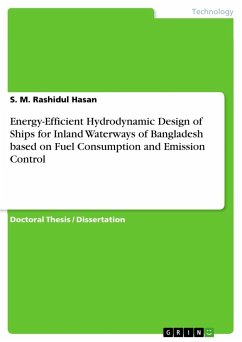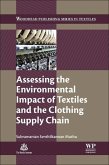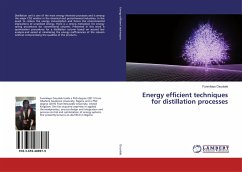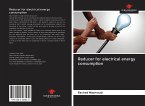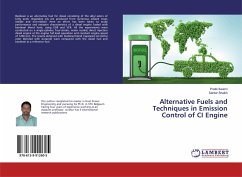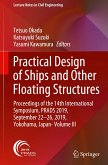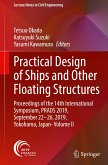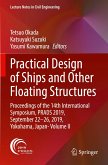Doctoral Thesis / Dissertation from the year 2022 in the subject Engineering - Naval Engineering, Ocean Engineering, , language: English, abstract: It has been observed that direct use of the Energy Efficiency Design Index (EEDI) by the International Maritime Organization (IMO) formulation for the inland ships will not provide the correct result. The prime reason is the effect of shallow water on the ship resistance. In addition to that, cargo availability and fuel quality issues for the inland vessels of Bangladesh forbid the use of IMO guidelines. Again, a generalized formulation is not possible for inland ships. Therefore, the EEDI formulation needs to be modified to be useful for an individual country. To find out the necessary modification of EEDI by IMO to be useful for inland ships of Bangladesh, several field visits, investigations, and laboratory tests have been conducted. The results of these visits, investigations and tests have been used to quantify the hydrodynamic effect of shallow water on ship resistance, actual average operational condition, cargo availability and actual carbon content in fuel. These corrections have been integrated with EEDI by IMO which has been used for the inland ships of Bangladesh. To quantify and set up the CO2 emission level of the Inland Maritime sector of Bangladesh, verified ship data and operational profiles are necessary. Using a good number of verified inland ship data, EEDI baselines for Bangladeshi inland cargo, oil tanker and passenger ships were established. These baselines are one of the first steps in the world for inland ships using verified ship data and are termed as EEDIBD. A ship design method that will ensure the reduction of CO2 emission, sensitivity analysis has been carried out. Three existing ships (cargo, oil tanker and passenger) of Bangladesh have been analysed and EEDIBD was calculated. To do that IMO provides several guidelines, which are most appropriate for seagoing ships. To assess the possibility of CO2 emission reduction, a sensitivity analysis was carried out on the inland ship design parameters of Bangladesh. The outcome of the sensitivity analysis is a set of inland ship design suggestions that will lower the EEDIBD value from the current stage. These ship design suggestions have been implemented on three existing inland ships. These existing ships resistance have been examined using Computational Fluid Dynamics (CFD). Those ships¿ designs have been improved based on the ship design suggestions. It has been found that remodelled ship designs have 10-15% less resistance in comparison with the parent hull.
Hinweis: Dieser Artikel kann nur an eine deutsche Lieferadresse ausgeliefert werden.
Hinweis: Dieser Artikel kann nur an eine deutsche Lieferadresse ausgeliefert werden.

